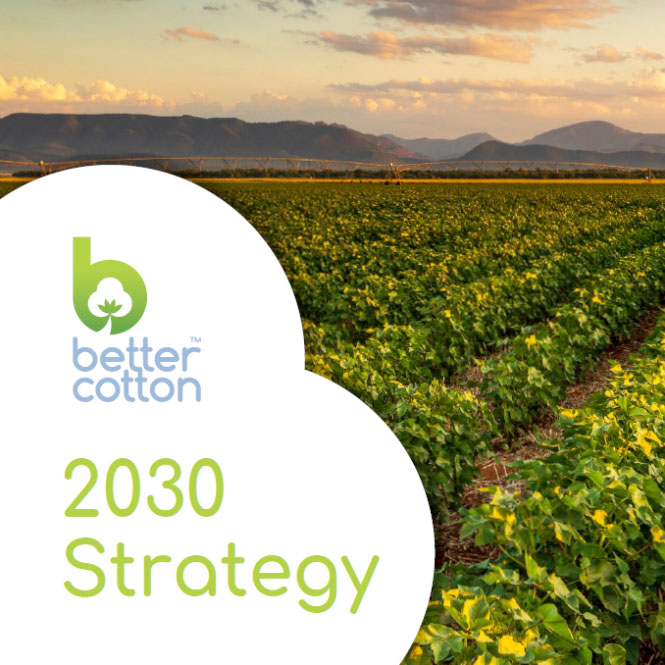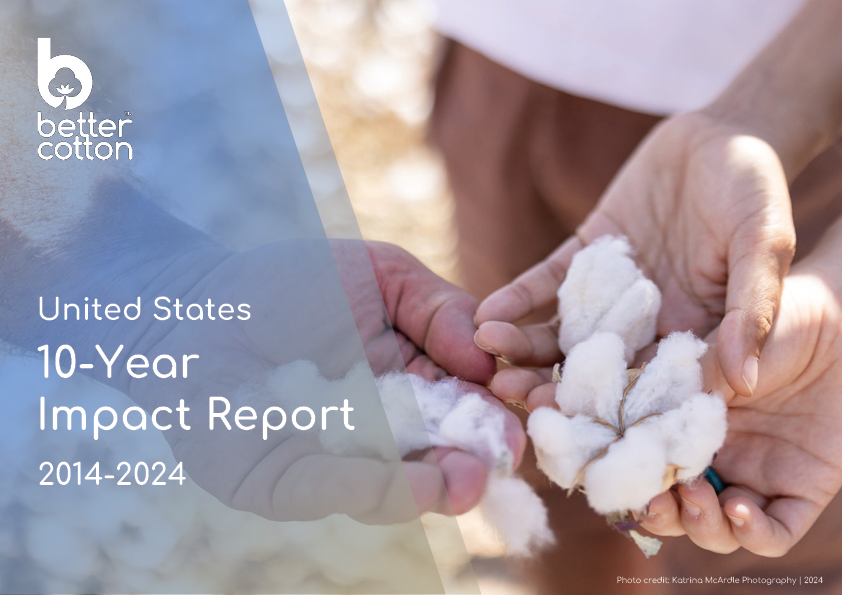- Who we are
- What we do
In just over 10 years we have become the world’s largest cotton sustainability programme. Our mission: to help cotton communities survive and thrive, while protecting and restoring the environment.
- Where we grow
Better Cotton is grown in 22 countries around the world and accounts for 22% of global cotton production. In the 2022-23 cotton season, 2.13 million licensed Better Cotton Farmers grew 5.47 million tonnes of Better Cotton.
- Our impact
- Membership
Today Better Cotton has more than 2,700 members, reflecting the breadth and diversity of the industry. Members of a global community that understands the mutual benefits of sustainable cotton farming. The moment you join, you become part of this too.
- Associate Membership
- Civil Society Membership
- Producer Organisation Membership
- Retailer and Brand Membership
- Supplier and Manufacturer Membership
- Find Members
- Member Monitoring
- Better Cotton Platform
- myBetterCotton
- Resources – Better Cotton Conference 2022
- Complaints
- Whistleblowing
- Safeguarding
- Get Involved in the Better Cotton Programme
- Thank you for contacting us
- Better Cotton’s Data Privacy Policy
- Log in
- Members’ Area
- Request for Proposals
- Better Cotton Cookie Policy
- Web Reference
- Measuring Cotton Consumption
- How to Implement the Chain of Custody Standard
- Resources – Better Cotton Conference 2023
- Certification Bodies Old
- Latest
- Sourcing
- Latest
The founding premise of Better Cotton is that a healthy sustainable future for cotton and the people that farm it is in the interests of everyone connected with it.
Let us help you find what you’re looking for
Results for {phrase} ({results_count} of {results_count_total})Displaying {results_count} results of {results_count_total}
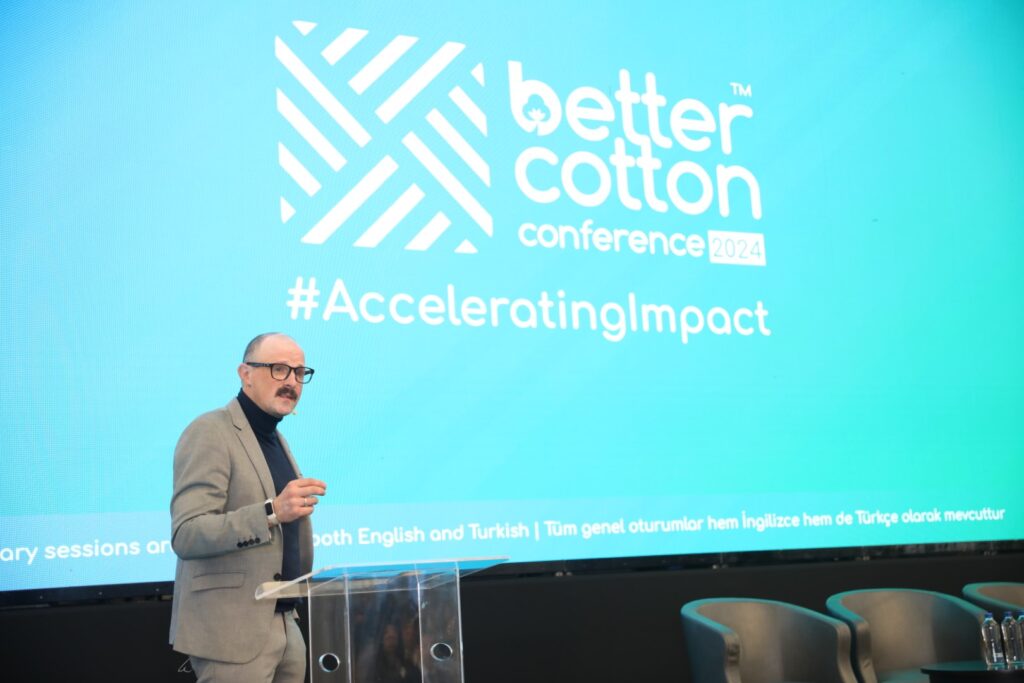
Thank you to everyone who joined us for this year’s 2024 Better Cotton Conference, both in Istanbul and online. It marked another year of lively discussion and debate across four key themes: Putting People First, Driving Change at Field Level, Understanding Policy and Industry Challenges, and Reporting on Data and Traceability.
Here’s our five takeaways – what were yours?
1. Concept vs Context
The first takeaway is about recognising the difference between ‘concept’ and ‘context’. While having a global vision for change in the cotton farming communities is crucial, it is equally important to consider the local realities and the surrounding challenges.
This involves recognising risks and allowing for gradual, community-led changes. As highlighted by Aarti Kapoor, Founder and Executive Director of Embode on the first day of the conference, issues such as child labour must be understood within the specific context of living income, climate change and access to resources such as education and healthcare.
2. Action Over Perfection
The second key takeaway is “action over perfection”, a line echoed across the two days. Several speakers reiterated that reward isn’t without risk, and that there is no time to waste in our collective mission to accelerate impact within the cotton sector.
In the event’s concluding panel, Better Cotton’s Chief Executive Officer, Alan McClay, said he was buoyed by the pace at which change continues. However, he called for greater mobilisation of resources in order to build on the great work already being done to advance the industry’s sustainability agenda and to tackle the climate crisis.
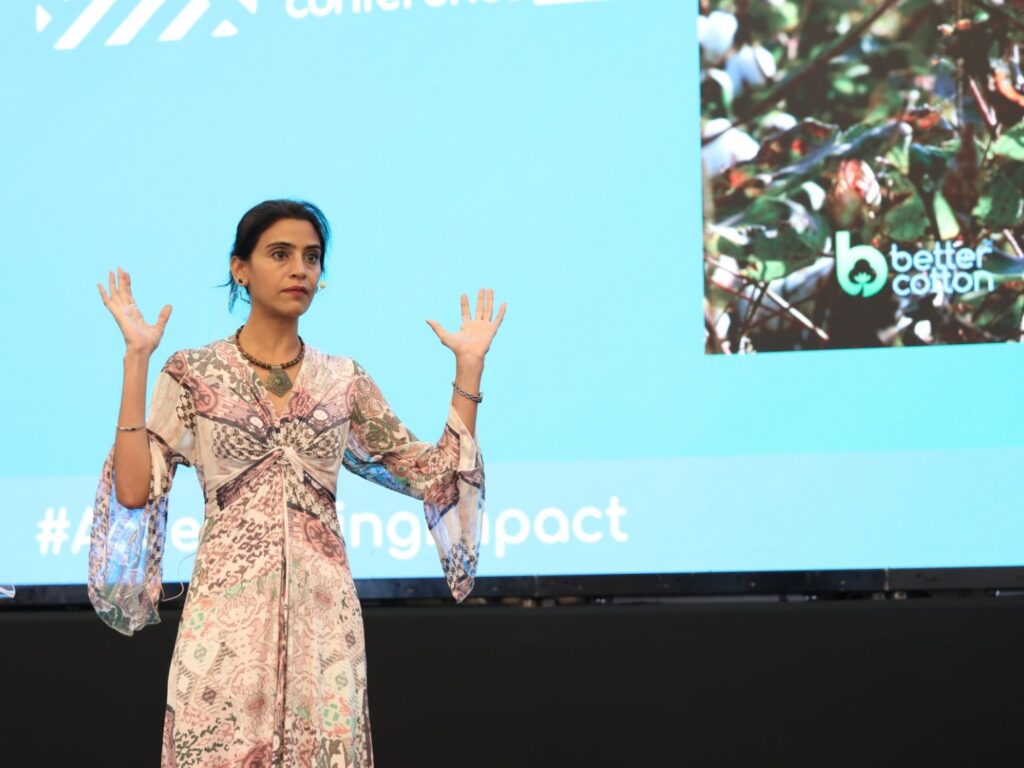

3. Championing Voices from the Field
The third takeaway is the importance of involving farmers in policymaking to ensure that policies have a tangible impact on the ground. This year, the Better Cotton Conference welcomed more in-person farmers and trainers than ever before. From India, Pakistan, Tajikistan and the US, these speakers chimed in on important discussions around the adoption of regenerative agricultural practices on large and small farmers, gender actions and innovations, and the social barriers women face in smallholder farming communities.
Their real-world examples from the field enriched the conversations, and helped many in the room – who may not otherwise have the opportunity to engage with farmers directly – gain invaluable insights into the progress being made and the challenges still to be overcome.
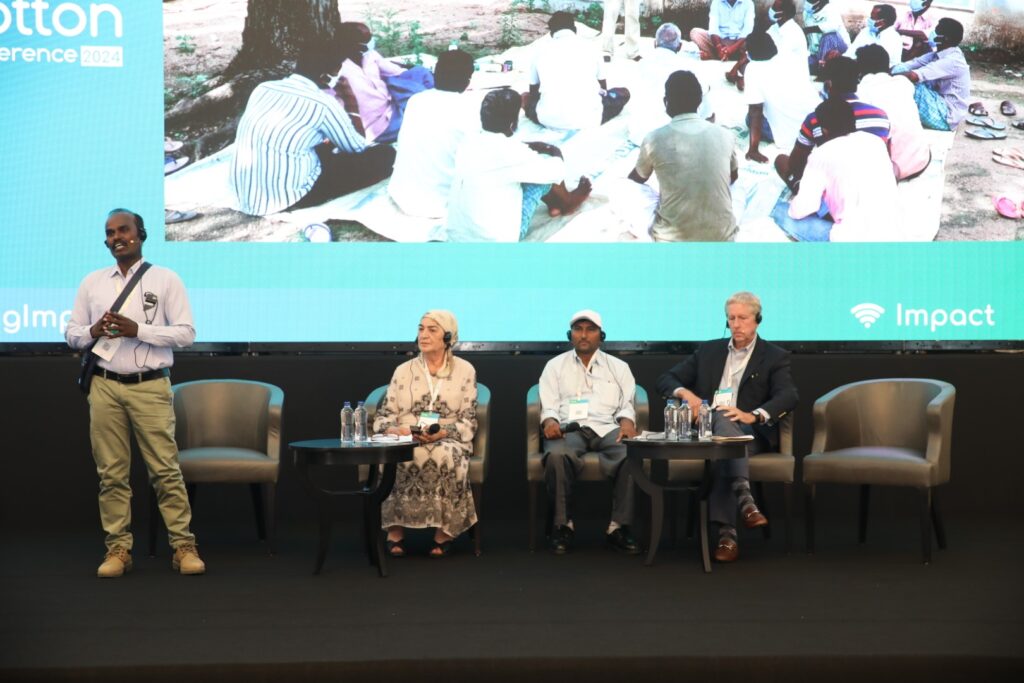
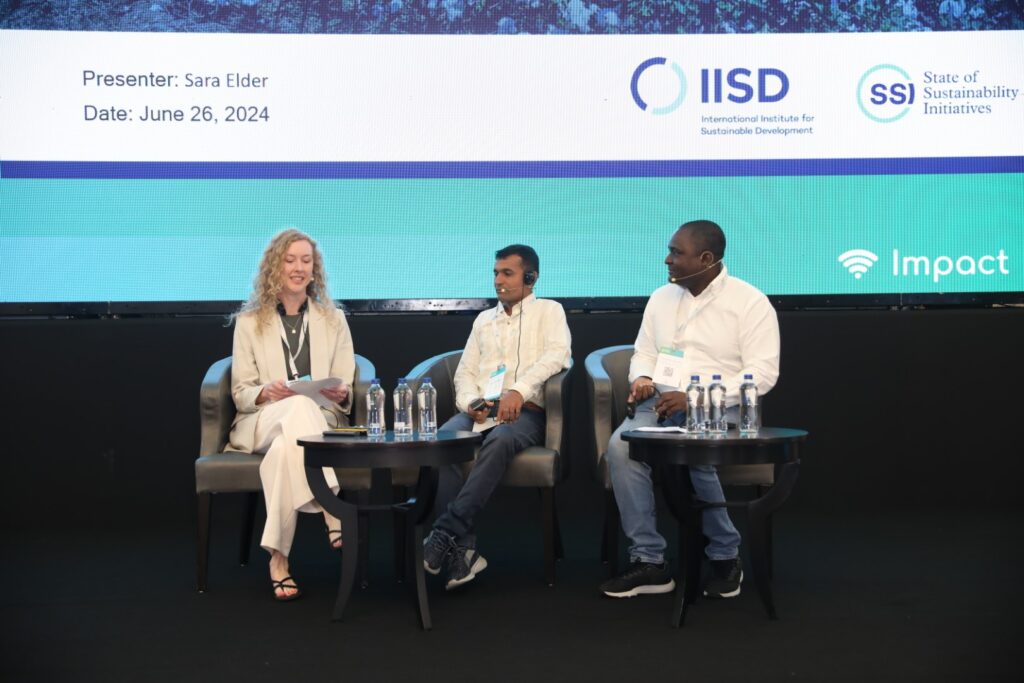
4. The Gender Lens
The fourth takeaway is the need to adopt a gender lens throughout all that we do as an industry.
What became clear is that challenges in cotton farming must be assessed and addressed in a way that is cognisant of the additional barriers women face within their communities. Nini Mehrotra, Better Cotton’s Senior Manager for Gender Equality, highlighted that gender pay gaps can be as high as 90%, and research suggests a potential 30% increase in workforce productivity when women are given the same opportunities as men.
Fortunately, inspiring speeches from cotton farmers Nazia Parveen, Nazia Asghar and Obidova Sanobar reminded us of the incredible work being done in countries from Pakistan to Tajikistan to accelerate women’s empowerment, break down barriers and ensure women have the means to support themselves.
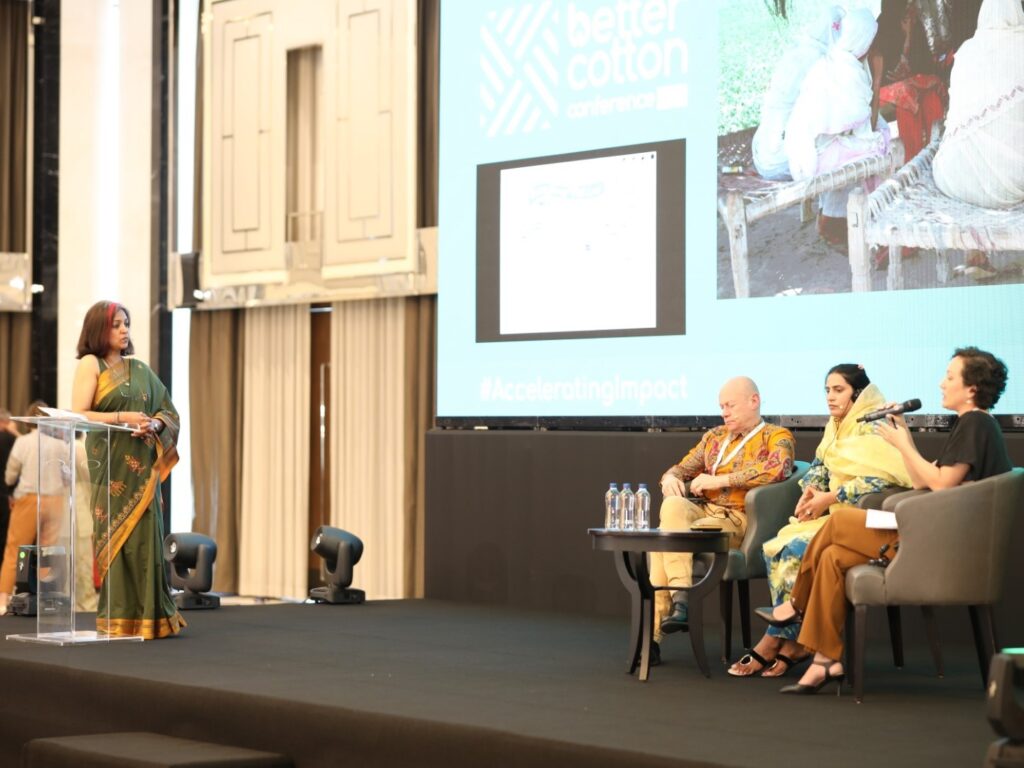
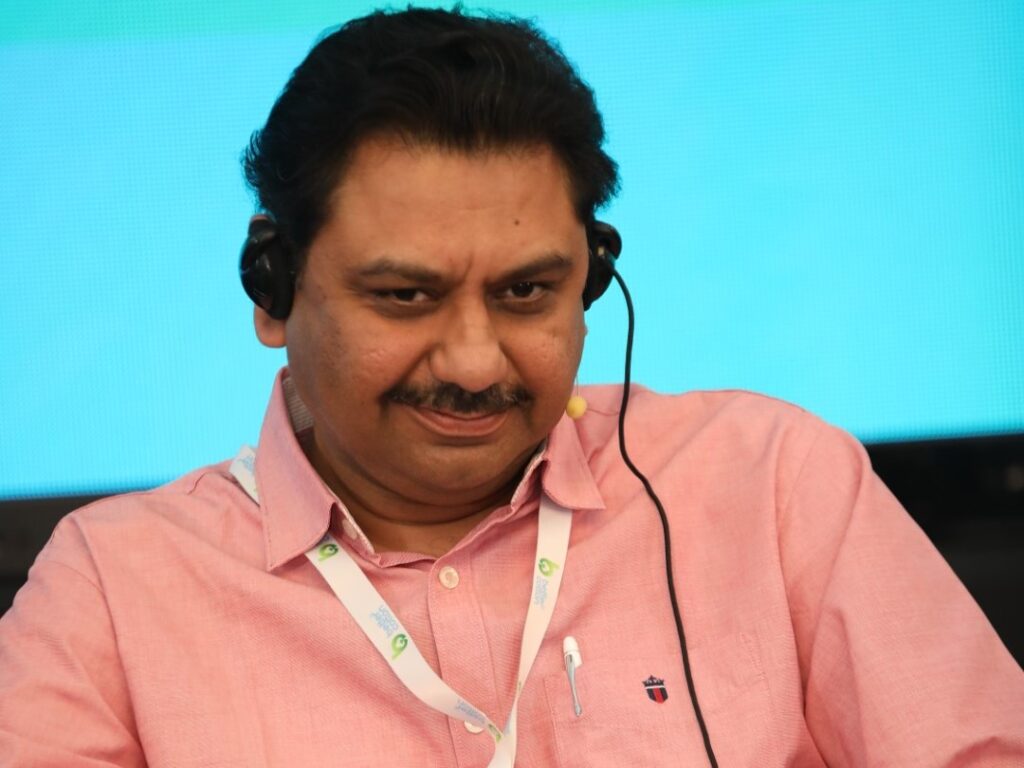
5. Pay More to Get More
The last takeaway is that increased investment is key to securing greater impact. There were examples shared of collaboration, progress and achievements, and we – as a sector – can and should be optimistic about our collective ambition. As IKEA’s Global Raw Material Leader, Arvind Rewal noted, however, much more can be done through increased investment. The message was clear: to get more, you must pay more.
This was echoed in sessions focused on farmer remuneration, where participants highlighted that if farmers do not receive a living income, there is no sustainable production. For many farmers, day-to-day survival is the most important priority, preventing them from dedicating time to other important concerns such as regenerative agriculture or climate change mitigation. In order to generate progress on these priorities, a focus on living incomes for farming communities is vital. For more on this, learn about our recent living income study in collaboration with IDH here.
Thank you once again to the over 400 participants who joined us both in-person and online. It has been truly inspiring, enriching and an absolute privilege to unite everyone across the supply chain. We look forward to continuing these discussions and working together to drive positive change. Stay tuned for more exciting recaps from the conference, and we can’t wait to welcome you back for the Better Cotton 2025 Conference!
